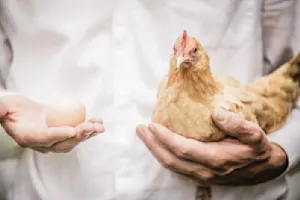What Makes This Word Tick
The word "querulous" is all about capturing that unmistakable spirit of complaint. It's the verbal equivalent of a long sigh combined with an eye roll. This adjective describes a person or tone that is full of complaints, often trivial or persistent in nature. If you've ever spent time with someone who finds something to grumble about during a sunny picnic, you know "querulous."
If Querulous Were a Person…
Imagine a fellow who always has a bit of a frown on his face, perhaps perpetually disgruntled about the weather or the price of milk. This person's favorite phrase might be, "Why does this always happen to me?" Despite their focus on minor annoyances, they're oddly endearing, like a character from a family sitcom who you can’t help but love, even as they find new things to nitpick.
How This Word Has Changed Over Time
"Querulous" has been carrying the same grumpy load for centuries. With its origins in late Middle English, this word hasn't strayed far from its mission of highlighting the perpetual complainer. While its popularity may have waned in casual conversation, you can still find it lurking in more literary corners.
Old Sayings and Proverbs That Use Querulous
While not featured in classic proverbs, the essence of "querulous" lives in phrases like "making mountains out of molehills" and "crying over spilled milk," both reflecting unnecessary or excessive complaining.
Surprising Facts About Querulous
Here's a tidbit: despite its negative connotation, in clinical settings, "querulous" was once used to describe a type of paranoia where the sufferer believes others are conspiring against them. Thankfully, that's a use that's faded away!
Out and About With This Word
Next time you’re out shopping and hear someone criticizing the arrangement of melons, that is your "querulous" moment. Stores, parks, and waiting rooms are natural habitats for the querulously inclined.
Pop Culture Moments Where Querulous Was Used
Curtis Sittenfeld's character in "Eligible" uses "querulous" to delightful effect, describing someone who transforms minor inconveniences into high drama. It's a perfect pop culture use of the word that fits her satirical style.
The Word in Literature
"Querulous" has a certain literary flair, doesn't it? It's a favorite among authors like Dickens and Austen, who populate their stories with curmudgeonly characters. It adds a vintage quality to narratives, wrapping scenes in a nostalgic grumble.
Moments in History with Querulous
Think of the Boston Tea Party, not in terms of its grandeur, but in the querulous tones of colonists muttering about taxes over their daily cuppa. Such moments remind us that even great events have their fair share of grumbling.
This Word Around the World
In French, you might describe the same attitude with the word "plaignard," while Germans might use "nörglerisch," both capturing the universal phenomenon of persistent complaining. Our "querulous" friend is truly a global citizen!
Where Does It Come From?
This word's roots burrow deep into the Latin "querulus," meaning "to complain." Over time, it wended its way through Old French into English, picking up its current spelling and nuanced connotations along the way.
How People Misuse This Word
Some might confuse "querulous" with outright anger or hostility, but it's more about the perpetual sound of whining—a different, albeit related, emotional note. It's the difference between a furious storm and a constant drizzle.
Words It’s Often Confused With
Quarrelsome: Involves a tendency to argue. "Querulous" is more about whining than fighting.
Petulant: Implies irritation and moodiness but with a childlike defensiveness; not as persistent as "querulous."
Crabby: A colloquial, friendly way to describe irritability; lacks the elegant grumble of "querulous."
Additional Synonyms and Antonyms
Expand your vocabulary with synonyms like peevish, testy, and fretful, each carrying its own flavor of discontent. Antonyms include cheerful, content, and placid—representing the rarer breeds of folks unfazed by life's minor misfires.
Want to Try It Out in a Sentence?
"Despite the sunny weather, Harold's querulous nature ensured he found something to grumble about, be it a too-warm breeze or chirping birds being too lively."
















